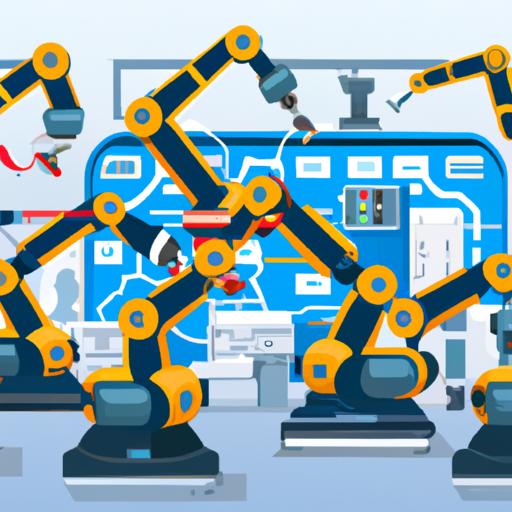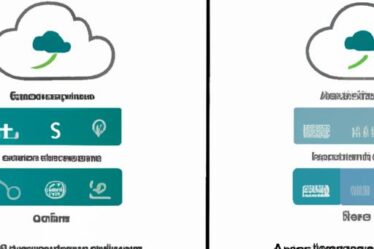
Introduction
In today’s fast-paced manufacturing landscape, staying ahead of the competition requires more than just traditional methods. Enter manufacturing software erp, a game-changer in the industry. But what exactly is Manufacturing Software ERP? It stands for Enterprise Resource Planning, specifically designed for the manufacturing sector to streamline operations, enhance efficiency, and drive growth.
The significance of Manufacturing Software ERP cannot be overstated. It serves as the backbone of manufacturing processes, integrating various facets such as inventory management, production planning, quality control, and supply chain management into a cohesive system. This not only simplifies complex operations but also empowers manufacturers to make data-driven decisions and adapt swiftly to market changes. So, are you ready to unlock the full potential of your manufacturing business with Manufacturing Software ERP? Let’s delve deeper into the world of possibilities it offers.
Key Features of Manufacturing Software ERP
Inventory Management
Efficient inventory management is crucial for manufacturing companies to ensure optimal stock levels, minimize carrying costs, and prevent stockouts. Manufacturing Software ERP provides real-time visibility into inventory levels, enabling businesses to track and manage inventory across multiple locations seamlessly. With features like automated reorder points and inventory tracking, manufacturers can streamline their supply chain and maintain optimal inventory levels.
Production Planning and Scheduling
Production planning and scheduling are essential components of manufacturing operations. Manufacturing Software ERP offers advanced tools to create production schedules, allocate resources, and optimize production processes. By integrating production planning and scheduling functionalities, manufacturers can improve operational efficiency, reduce lead times, and meet customer demand effectively. With real-time production updates and scheduling capabilities, businesses can enhance productivity and maximize output.
Benefits of using Manufacturing Software ERP
Increased Efficiency and Productivity
Implementing Manufacturing Software ERP leads to a significant boost in efficiency and productivity. By automating repetitive tasks, optimizing workflows, and providing real-time insights, manufacturers can streamline operations and accomplish more in less time.
Improved Inventory Management
One of the key advantages of Manufacturing Software ERP is its ability to revolutionize inventory management. With features like real-time tracking, demand forecasting, and automated replenishment, manufacturers can maintain optimal inventory levels, reduce stockouts, and minimize carrying costs.
Enhanced Decision-Making Capabilities
Manufacturing Software ERP empowers decision-makers with accurate, up-to-date information at their fingertips. By centralizing data from various departments and providing comprehensive analytics, manufacturers can make informed decisions promptly, leading to better outcomes and strategic planning.
Streamlined Communication and Collaboration
Effective communication and collaboration are crucial for success in manufacturing. Manufacturing Software ERP facilitates seamless communication between teams, departments, and even external stakeholders. This ensures everyone is on the same page, fostering collaboration and boosting overall productivity.
Cost Savings
Last but not least, implementing Manufacturing Software ERP can result in significant cost savings for manufacturers. By optimizing processes, reducing waste, and enhancing resource utilization, companies can lower operational costs, improve profitability, and gain a competitive edge in the market.
Factors to Consider When Choosing a Manufacturing Software ERP
Scalability
When selecting a Manufacturing Software ERP, scalability is a crucial factor to consider. As your manufacturing business grows, you need a system that can expand with it. Look for a solution that can accommodate increasing data volume, user numbers, and operational complexity without compromising performance.
Customization Options
Every manufacturing business is unique, with specific processes and requirements. Therefore, the ability to customize your ERP software to align with your business needs is essential. Ensure that the system offers flexibility for customization to tailor it to your workflows and preferences.
Integration Capabilities
Seamless integration with existing systems and software is vital for a smooth operational transition. Your Manufacturing Software ERP should be able to integrate with other tools such as accounting software, CRM systems, and e-commerce platforms. This integration ensures data consistency across all business functions.
User-Friendliness
A user-friendly interface is key to maximizing the benefits of your Manufacturing Software ERP. The system should be intuitive and easy to navigate for all users, from shop floor operators to top-level management. Training requirements should be minimal, allowing your team to quickly adapt and utilize the system efficiently.
Customer Support
Effective customer support is a lifeline when implementing and using Manufacturing Software ERP. Choose a provider that offers responsive and knowledgeable support services. This ensures that any issues or queries are addressed promptly, minimizing downtime and maximizing the system’s effectiveness for your business.
Case Studies of Successful Implementation of Manufacturing Software ERP
Company A: Boosting Production Output
Company A, a leading manufacturer in the industry, witnessed a remarkable transformation after integrating Manufacturing Software ERP into their operations. By leveraging the advanced features of the software, they were able to increase their production output by an impressive 20%. This substantial improvement not only enhanced their overall efficiency but also enabled them to meet growing demands with ease. Company A’s success story serves as a testament to the transformative power of Manufacturing Software ERP in optimizing manufacturing processes.
Key Takeaway:
- Implementation of Manufacturing Software ERP can significantly enhance production output and operational efficiency, leading to tangible results for manufacturers.
Company B: Cutting Costs Through Efficient Inventory Management
In today’s competitive market, efficient inventory management is crucial for success. Company B recognized this fact and decided to implement Manufacturing Software ERP to streamline their inventory processes. The results were astounding – they managed to reduce their inventory holding costs by an impressive 15%. By gaining better visibility and control over their inventory levels, Company B not only saved costs but also improved their overall supply chain management. This success story showcases the cost-saving potential of Manufacturing Software ERP for manufacturers.
Key Takeaway:
- Efficient inventory management through Manufacturing Software ERP can lead to substantial cost savings and improved supply chain management for manufacturing businesses.
Conclusion
Embracing Manufacturing Software ERP can revolutionize your manufacturing business, propelling it to new heights of success and efficiency. By harnessing the power of advanced features like inventory management, production planning, and real-time analytics, you can optimize your operations and outperform the competition. The benefits are clear – increased productivity, improved decision-making, and substantial cost savings.
In a world where every decision counts, implementing Manufacturing Software ERP is not just an option but a necessity for thriving in the competitive manufacturing landscape. So, why wait? Take the leap today and witness firsthand the transformative impact of Manufacturing Software ERP on your business. Elevate your operations, streamline your processes, and pave the way for a future of growth and prosperity. The time to unlock the full potential of your manufacturing business is now with Manufacturing Software ERP.


